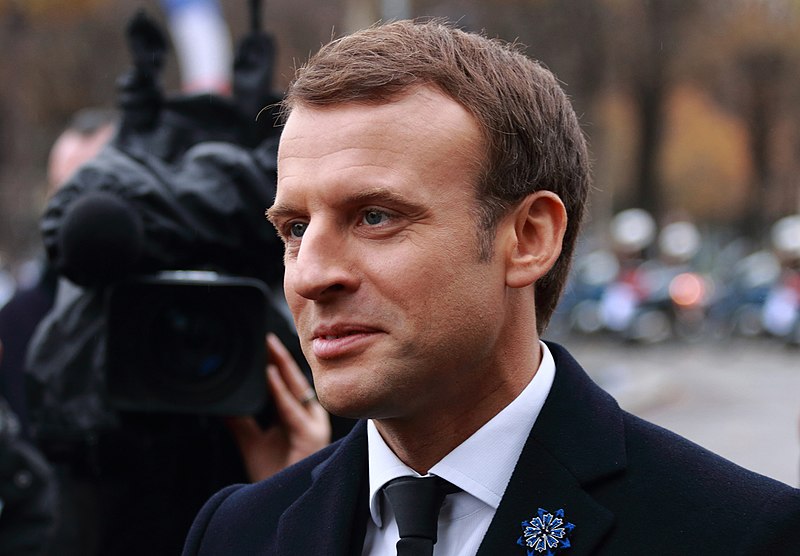Macron Wins French Election
Comfortable victory over far-right candidate Marine Le Pen
On April 10, France held its presidential election. In the first round of voting, 12 candidates competed against each other, but when no candidate received more than 50% of the vote, the two candidates that received the most votes – current president Emmanuel Macron and far-right candidate Marine Le Pen participated in a runoff election held on April 24. Macron won a second term with 59% of the vote compared to Le Pen’s 41%.
The candidates qualified for the race by securing endorsements from 500 mayors and local councilors from across the country. On Sunday, April 10th, the first round of voting showed Macron, the leader of France’s centrist party, with 27.8% of the vote, ahead of far-right candidate Marine Le Pen by about five percentage points. These results meant President Macron would face Le Pen again in a runoff election. Unlike the previous election, in 2017, where Le Pen lost by 66.1%, polls leading up to the runoff suggested it would be a very tight election, with Macron winning 55% to 45%.
The voting in France for the runoff election was very apathetic in both the first round of voting and the runoff—over 28% of registered voters did not participate. After the reports came out on the lack of voting from the first round of elections, Macron made a statement to the people emphasizing the importance of voting, saying, “Nothing is settled, and the debate that we will have in the coming 15 days is decisive for our country and our Europe.” He also stated, “I don’t want a France which, having left Europe, would have as its only allies the international populists and xenophobes. That is not us. I want a France faithful to humanism, to the spirit of enlightenment.”
After the first election, then-candidate Jean-Luc Mélenchon, who gained over 20% of the votes, made a statement to his supporters to “not give a single vote to Mrs. Le Pen.” However, he did not tell his supporters to vote for Macron either. Since then, things got better for Macron after an Elabe poll published on Tuesday, April 19th stated that 42% of Mélenchon’s voters were ready to vote for Macron, up 7% from the week prior.
Le Pen’s policies aim to restrict immigration, ban the hijab in public places, cut ties with the European Union, and eliminate the Euro in France. Le Pen is a vocal admirer of Vladimir Putin, a well-known fact from her meetings with the Russian President during her 2017 campaign. However, her candidacy this year discreetly avoided mentioning those policies. Instead, she initially catered more to the people living in Denain in northern France, where the cost of living has been difficult for decades. In response to her promises to the people living in Denain, Macron stated that “[she] is all talk about the cost of living and protecting people in most difficulty. But in concrete terms, what would she achieve for them—and what would we do?”
The way French citizens chose to vote, according to interviews before the final election on Sunday, was described to be not for somebody they want, but rather against somebody they do not like. So, as a result, they considered just voting for Le Pen to go against Macron. Others remark that they do not support Le Pen but are still upset with Macron for not being liberal enough with his policies and decided not to vote for either. People who voted for Mélenchon in the first election have commented that “In the first round, I voted for Mélenchon because he had ideas that were relevant to me. And now, in the second round, we don’t have that choice. It’s a choice between the bad and the less bad. We’ve seen what Macron is like, he’s served his term, and we’ve seen what Le Pen’s program is, so there is nothing new there.”
A Le Pen victory was projected to be much closer to becoming a possibility than the last election five years ago in 2017. As Republican Valerie Pecresse said, “The far-right has never been so close to winning.” On April 19th in Paris, the polls showed that Macron began to widen his lead right before campaigning stopped on Friday, April 22nd. The French daily newspaper Le Monde revealed that Macron led by 56.5% of the vote to Le Pen’s 43.5%. The two sides made it a close call, and the election put all eyes on France as it was widely believed that the winner would determine the fate of the European Union as a whole moving forward. As CNN European Affairs Dominic Thomas states, “There is a world of difference between [Le Pen] and Macron, and how she would disrupt European and global politics.”
President Macron stated in his victory speech that his re-election will lead to “a more independent France and a stronger Europe.” He also acknowledged that the campaign had been bitter and that “anger has been expressed.” Le Pen’s concession speech criticized Macron for being aggressive and using “brutal and violent methods” during the campaign. This election is her third failed attempt to run for president. She stated that the “French people have shown their desire for a strong counter-power to Emmanuel Macron this evening,” and Le Pen vowed that she would work to get large numbers of legislative representatives in June.
Macron acknowledged that many voted for him to avoid the election of Le Pen, who would have turned Europe upside down and changed sides in the ongoing war between Russia and Ukraine. After a polarizing election, Macron pledges to reunite France since it has been “filled with so many doubts [and] so many divisions.”







